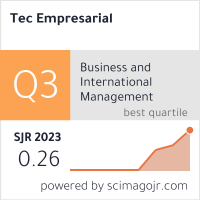MANAGERIAL PERFORMANCE OF REGIONAL GENERAL HOSPITALS IN NORTH SULAWESI PROVINCE
Abstract
In a dynamic health care environment, effective budget management is the key to improving managerial performance. This study examines how budget pressure affects managerial performance at Regional General Hospitals (RSUD) in North Sulawesi, with a focus on the mediating role of budget participation and organizational commitment. This research aims to reveal the internal dynamics of RSUD management which faces high budget pressure, as well as enriching the literature regarding the influence of participation and commitment on management practices in the health sector.
Using a quantitative approach, this research involved 158 respondents from various regional hospitals in North Sulawesi. Data was collected through questionnaires and analyzed using Partial Least Squares Structural Equation Modeling (PLS-SEM) to test the relationship between variables and the proposed mediation.
The research findings show that budget pressure significantly influences managerial performance. The research results indicate that budget participation positively influences managerial performance. Organizational commitment has been proven to improve managerial performance. There is a strong relationship between budget pressure and organizational commitment, suggesting that excessive budget pressure can reduce employee commitment. Budget pressure influences the extent to which employees can participate in budgeting. The findings show that budget participation mediates the relationship between budget pressure and managerial performance. Shows that despite pressure, active involvement of managers in budgeting can minimize the negative impact of budget pressure on performance. Organizational commitment also mediates the effect of budget pressure on managerial performance. This underscores the importance of maintaining employee commitment amidst budgetary pressures to ensure uninterrupted managerial performance.
This research confirms that inclusive budget management and strategies for increasing organizational commitment are the keys to minimizing budget pressure and improving performance in RSUD. It is recommended for RSUD in North Sulawesi to adopt a participatory approach in the budget process and strengthen programs that increase employee commitment, such as training, career development and welfare. The implications of this research provide insight for the development of health policies that are more adaptive and responsive to budget pressures in the public sector.






